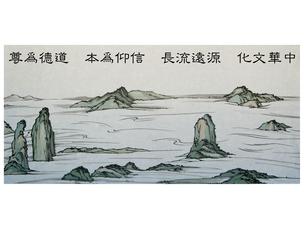April 01, 2006
(Clearwisdom.net) Recently, the overseas media has reported on the harvesting of organs from living Falun Gong practitioners in the secret Sujiatun Concentration Camp. Due to the CCP’s information blockade, additional evidence is needed for further confirmation. If we simply study the sources of organ transplants that occur in China, we can find some strong indication of the validity of the reports.
In March 2005, the Deputy Minister of the Ministry of Health, Huang Jiefu, admitted for the first time in history that most organs in organ transplant surgeries in China come from death penalty prisoners. So, how many death row prisoners were executed in China every year prior to or since then?
According to reports by Amnesty International, from 1990 to 1999 there were 18,194 prisoners sentenced to the death penalty in China, i.e., an average of 1,819 cases every year. In 2001 this number increased to 2,468. Amnesty International reported in its 2004 report that there were at least 3,797 executions in 25 countries, and that, among these executions, 3,400 happened in China. Amnesty International said that 5,000 or more prisoners are executed every year in China.
According to a report dated April 18, 2000 from Voice of America, a scholar from the Chinese Academy of Social Sciences, Liu Renwen, estimated (based on reports from the courts and judges) that there are about 8,000 prisoners executed in China every year. In March 2004, the newspaper China Youth Daily reported that when representatives from the National People’s Congress claimed that there have been more than 10,000 executions every year in China while they urged the Supreme Court to re-check all the death sentence cases. If we estimate based on the largest reported number of 10,000, then how many organs can those death-row prisoners provide?
On October 9, 1984 the Supreme Court, the Supreme People’s Procuratorate, the Ministry of Justice, the Ministry of Civil Affairs, the Ministry of Health and the Ministry of Public Security jointly produced a legal document titled “Temporary Rules for Using Executed Prisoners’ Corpses and Organs.” According to this document, the corpses and/or organs can be used in the following cases: 1) No one is willing to claim the body and bury it; or the family members refuse to take and bury it; 2) The prisoner willingly donates it to the hospital or research institute; and 3) The family agrees to the use of the corpse. Due to the traditional ethics and notions that “one’s body is given by the parents, so one should keep it intact” and that “one should keep the body whole even after death,” very few Chinese are willing to donate their corpse. According to sources, less than 5% of the prisoners’ families are willing to donate the corpse and no more than 5% of the corpses are left unclaimed. Based on this data, one can estimate that only about 1,000 corpses per year, at most, can be used as organ transplant sources in China.
Then how many organ transplants occur in China every year? According to incomplete statistics from the China Organ Transplant Research Association, there have been 55,000 organ transplants in China up until 2003. Of the 55,000 transplants, about 50,000 cases have been kidney transplants. The number of current kidney transplants is reported at more than 5,000 per year in China. In 2001 there were 5,561 kidney transplants done in 106 medical units that are registered, and in 2004 there were more than 7,000 kidney transplants. (This number is only a little less than the number of those done in the United States.) Among them, the number of family kidney transplants is several hundred. In the case of liver transplants, there were 78 cases in eight years from 1991 to 1998, and there were cases of long-term survival from the transplant. After 1998, this number increased dramatically. There were 118, 254, and 486 cases in 1999, 2000 and 2001, respectively. In 2002 there were 996 cases, and over 1,300 cases occurred in 2003. According to a report from The Beijing News on June 23, 2005, there were more than 2,000 liver transplants in 2004. Take an example from the Oriental Organ Transplant Center in Tianjin City, according to an interview from the deputy chief of the center, they did 311 liver transplants in the first six months of 2005. All the numbers listed above are from incomplete and conservative statistics, so the actual number of transplants could be larger. Actually, in the past few years China has become a hot market for organ transplants. Many Koreans, Japanese, Taiwanese, Australians and Israelis have come to China for organ transplants. According to an estimate by the Korean medical community, about 1,000 Koreans have had organ-transplant surgeries in Beijing, Shanghai and Guangzhou per year in recent years.
Organs from prisoner corpses are far from enough for such a large number of organ transplants. There are (or were) about 6,000 Falun Gong practitioners jailed in the Sujiatun Concentration Camp by the CCP. According to witnesses, three-fourths of those 6,000 Falun Gong practitioners have been killed for their organs. According to a report from the World Organization to Investigate the Persecution of Falun Gong, there is a huge human organ market in the Sujiatun District of Shenyang City, Liaoning Province.
The organ harvesting in the Sujiatun Concentration Camp further exposes the evil nature of the Chinese Communist Party. We hope that those who have been deceived by the CCP will wake up and see the CCP clearly for what it is. Let us stand together and be the voice of justice to stop this ongoing brutal, evil persecution and stop this tragedy.
March 27, 2006
——————————————————————————
大家都来看”九评共产党” ( VCD, 书)!
Let’s find “Nine Commentaries on the Communist Party”(VCD, books)!
快上大纪元声明退出共产党和共产党其它组织(/团/队),抹去邪恶的印记!
Quit the Evil Chinese Communist Party or its affiliated organizations today!


